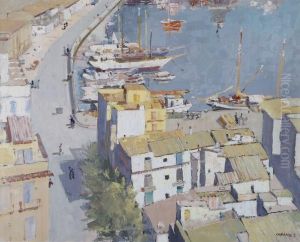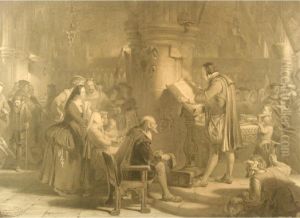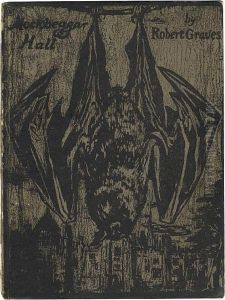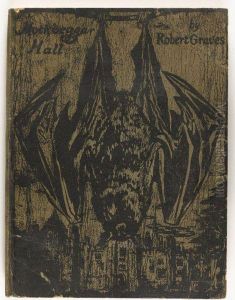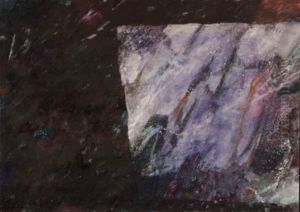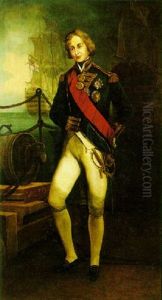Robert Graves Paintings
Robert Graves was a British poet, novelist, and critic, born on July 24, 1895, in Wimbledon, then a part of Surrey, England, now in London. He was known for his innovative and diverse literary work, which spanned over several genres including poetry, historical fiction, and academic studies in mythology and antiquity. Graves' early years were marked by his service in the British army during World War I, an experience that deeply influenced his writing and outlook on life. His war poems and autobiography, 'Goodbye to All That' (1929), reflect the horror and disillusionment he felt as a result of the war.
Graves studied at Oxford before enlisting in the army, and after the war, he returned to Oxford to complete his degree. His personal life was as tumultuous as his times; his relationships and marriages were often the subject of public interest and speculation. In 1929, seeking a warmer climate for health reasons and a quieter place to write, Graves moved to Majorca, Spain, with the American poet Laura Riding. This period was one of his most productive, seeing the creation of many of his major works.
He is perhaps best known for his historical novels, particularly 'I, Claudius' (1934) and its sequel 'Claudius the God' (1934), which are regarded as classics of the genre. These books, which fictionalize the life of the Roman Emperor Claudius, brought Graves widespread acclaim and financial stability. His academic works, such as 'The White Goddess' (1948), reflect his interest in mythology, poetry, and the matriarchal societies of pre-Christian Europe, presenting a unique view of the sources of poetic inspiration.
Graves continued to write prolifically until late in life, his works encompassing a wide range of subjects and genres. He returned to England briefly during the Second World War but spent the majority of his later years in Majorca, where he died on December 7, 1985. His legacy includes more than 140 books, and although he is primarily remembered for his novels and scholarly works, Graves considered himself foremost a poet, viewing his other writing as a means to support his poetic endeavors.
